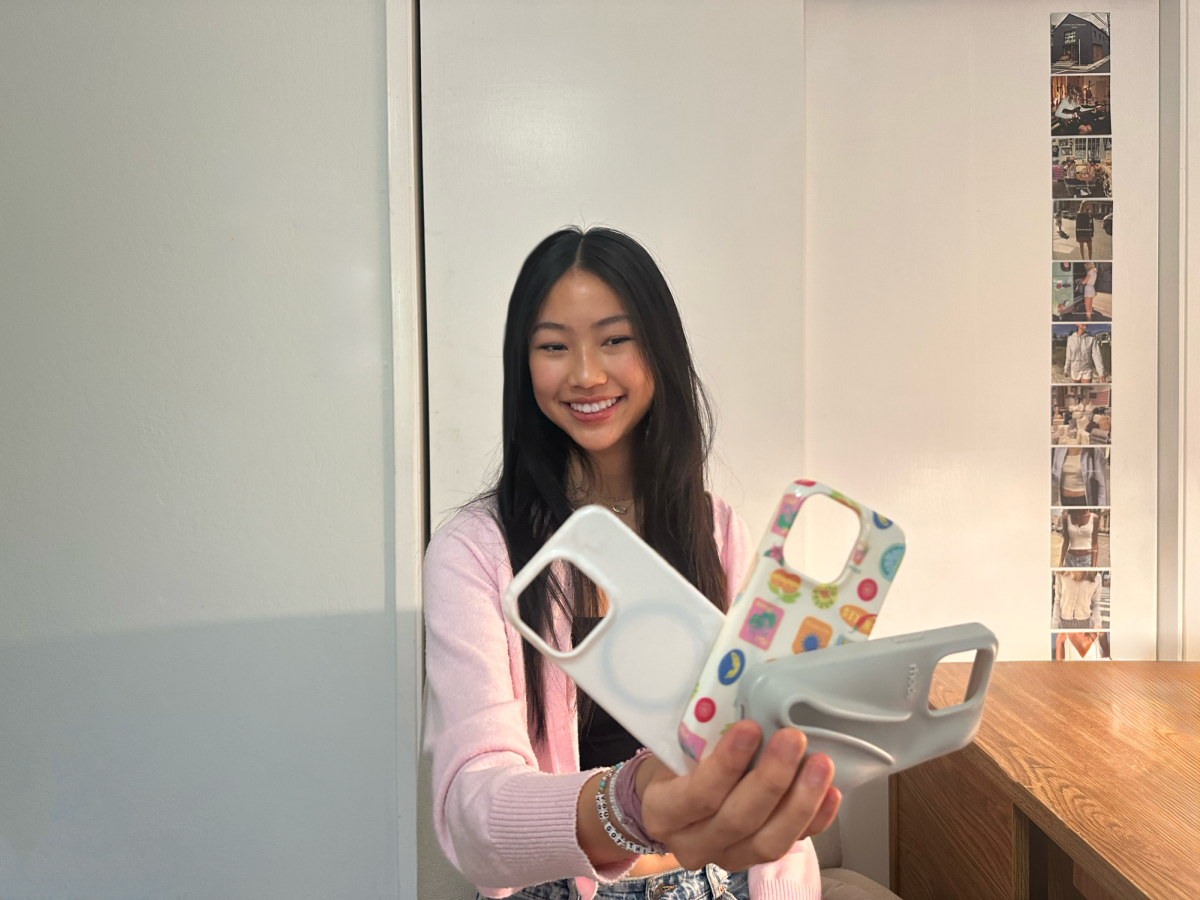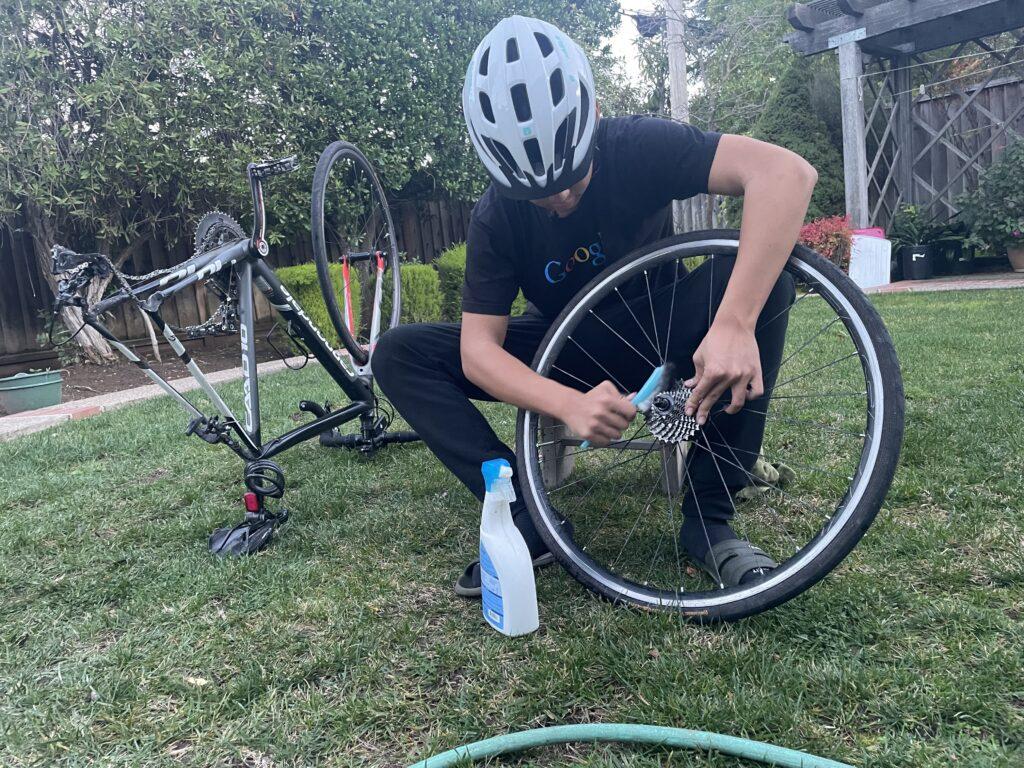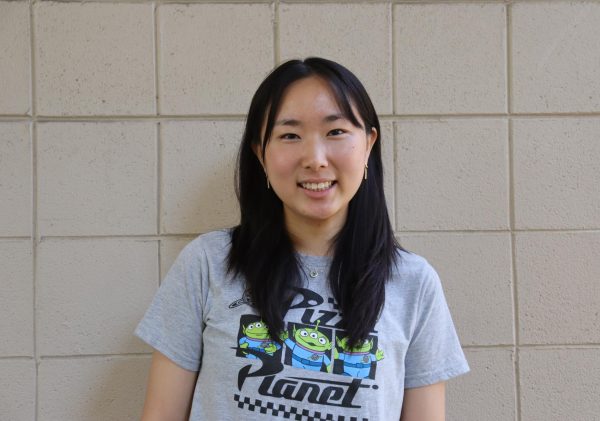During the pandemic, freshman Dylan Zuo — then a sixth grader — spent his afternoons biking around his neighborhood on his 2021 Giant Fathom 1, enjoying the sunset view of blue and purple skies mixing behind the far-away mountain peaks and looming trees.
“[During that time], I found that [bike riding] was really calming and relieved my stress,” Zuo said. “I could see nature and just enjoy life.”
However, due to the overuse of his bike, Zuo described the bike’s conditions as “ancient” and “beat up,” which only worsened after he learned how to perform tricks on his bike like wheelies and riding without hands. Because Zuo didn’t want to spend hundreds of dollars paying for a repair that could take up to weeks on end, he decided to learn how to fix the bike himself by watching YouTube tutorials.
After a month of watching the tutorials, Zuo punctured the rear wheel of his bike, giving him the perfect opportunity to utilize his newly gained knowledge. He recalls struggling for half an hour to figure out the mechanics of the wheel, taking the rear tire and inner tube off the rim of the wheel. Zuo spent three hours installing the tire on the wheel and the wheel onto the bike, only to realize that he installed the rear tire backward, leading him to spend another two hours reversing the order.
“It was a lot easier the second time after I fixed my bike,” he said. “I felt like I was on top of the world: independent and accomplished. I didn’t tie this into any engineering interest; fixing bikes is like therapy to me. It’s satisfying when I finish working on a [rusted, beat-up bike] to a completely brand-new finished bike.”
In the last four years, Zuo’s passion for bike riding and fixing has continued to grow, inspiring him to establish his own unofficial bike-fixing business over the summer of 2023. In addition to running his own business, Zuo also serves as the current vice president of the school’s bike club with junior president Han Yeung.
“I always thought that [my passion for bikes] was a kind of niche thing that only specific people like me had,” Zuo said. “But then I got introduced to Han and we started talking and eventually formed a bike club earlier this [school] year.”
As of now, Zuo’s business is still a “small scope” activity where he advertises on WeChat or Discord for service to any of his friends, individuals in his neighborhood or family friends with problematic bikes. If the service is relatively minor, such as cleaning a bike for around 10 minutes, Zuo won’t charge anything. But, if the service takes longer — removing wheels, deep cleaning parts or repairing broken chains — he charges $20 an hour. So far, Zuo’s maximum price for any service that exceeds two hours is $40 and he has made $120 since creating his business.
This year, Zuo hopes he can expand his business by advertising on social media. Once he gains more popularity, Zuo also looks to integrate his knowledge into the bike club by teaching the 15 members how to fix their own bikes.
“Biking has many benefits,” Zuo said. “It’s rewarding both physically and mentally knowing that as I conclude my weekly bike riding sessions with the biking club, I’ve directly contributed to my community by tackling the seemingly tedious task of fixing bikes.”



























